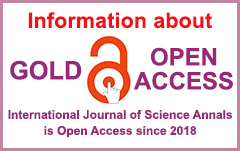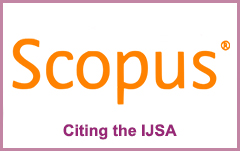|
1 Akamai University, Hawaii, USA
2 Sumy State University, Ukraine
3 The Equality Foundation, USA
4 Human Survival Foundation, UK |
Abstract
The contemporary world is in very difficult trajectory. As a matter of fact, the Humanity is in crisis and in challenge. The scholarly world is also kind of traumatized. We all are scared due to uncertainty created by the Corona Pandemic. Covid-19 pandemic has created great uncertainty humanity has ever faced and its impact is everywhere, over the economy, employment, finances, relationships, and physical and mental health as well as in social equilibrium. When there is crisis, it is normal to lose patience, perseverance and the mental strength, and also there is always a chance of hopelessness. As such we live in hope and hope creates the motivation to move ahead. Motivation creates inner power to human heart as well as in the human brain. The current crisis has direct impact to all of us and we are in the crisis of humanity, and even crisis is hope as well as crisis of motivation. Our regular thinking pattern is deeply disturbed, our regular living style is altered, our all collegial circles are under confusion and also in suspicious condition within and beyond. When there is a direct hit on human brain due to uncertainty and fear, it raises direct pain in the deep-thinking pattern and when there is danger around us, we may begin to think everything differently. At present our condition is instable therefore, our creativeness, is disturbed, and the established notion of research, development, innovation and contribution to the society at large is also in danger cloud.
Bhandari, M. P. (2019). “Bashudaiva Kutumbakkam” – The entire world is our home and all living beings are our relatives. Why we need to worry about climate change, with reference to pollution problems in the major cities of India, Nepal, Bangladesh and Pakistan. Advances in Agriculture and Environmental Science, 2(1), 8−35. doi:10.30881/aaeoa.00019
Bhandari, M. P. (2019). Live and let other live – the harmony with nature/living beings-in reference to sustainable development (SD) – is contemporary world’s economic and social phenomena is favorable for the sustainability of the planet in reference to India, Nepal, Bangladesh, and Pakistan? Advances in Agriculture and Environmental Science, 2(2), 37−57. doi:10.30881/aaeoa.00020
Bhandari, M. P. (2020). The phobia corona (COVID 19) – What can we do. Scientific Journal of Bielsko-Biala School of Finance and Law, 24(1), 5–7. doi:10.5604/01.3001.0014.0769
Bhandari Medani Prasad – https://orcid.org/0000-0003-2213-2349; Doctor of Philosophy in Sociology, Professor, Professor of Sustainability, Akamai University, Hawaii, USA; Professor of Innovation and Entrepreneurship, Sumy State University, Ukraine; General Secretary, The Equality Foundation, USA; Executive Director, Human Survival Foundation, UK.
| |
APA
Bhandari, M. P. (2020). In the Covid-19 Regime – What Role Intellectual Society Can Play. International Journal of Science Annals, 3(2), 5–7. https://doi.org/10.26697/ijsa.2020.2.1
Harvard
Bhandari, M. P., 2020. "In the Covid-19 Regime – What Role Intellectual Society Can Play". International Journal of Science Annals, [online] 3(2), pp.5–7. viewed 20 December 2020, https://culturehealth.org/ijsa_archive/ijsa.2020.2.1.pdf
Vancouver
Bhandari M. P. In the Covid-19 Regime – What Role Intellectual Society Can Play. International Journal of Science Annals [Internet]. 2020 [cited 20 December 2020]; 3(2):5–7. Available from: https://culturehealth.org/ijsa_archive/ijsa.2020.2.1.pdf https://doi.org/10.26697/ijsa.2020.2.1












